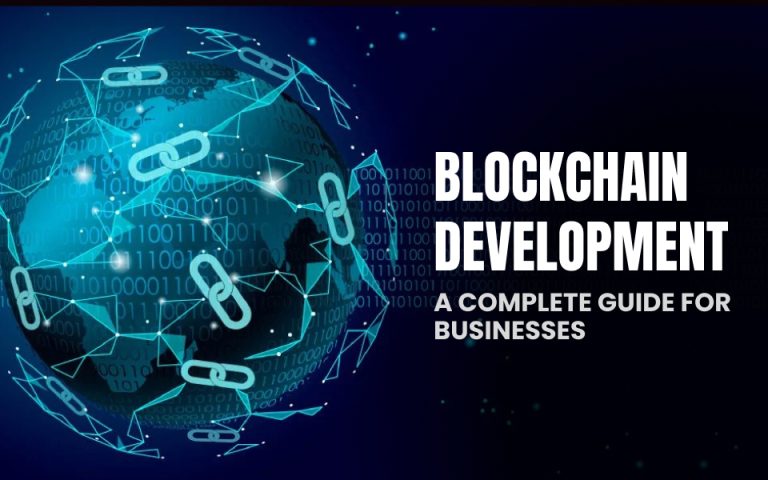Blockchain technology, once solely associated with cryptocurrencies, has now become a powerful tool for business innovation. In 2025, blockchain is revolutionizing industries by enhancing transparency, security, and efficiency in everyday business operations. From supply chains to finance, smart contracts to identity management, blockchain is no longer a buzzword—it’s a business essential.
This article explores how blockchain for business is evolving in 2025 and why companies are increasingly adopting this technology.
🔗 What Is Blockchain?
At its core, blockchain is a decentralized digital ledger that records transactions across multiple computers. Each “block” contains a list of transactions, and once verified, it is added to the “chain” in a secure, chronological order. The technology’s key features include:
- Immutability: Once data is recorded, it can’t be altered.
- Transparency: All transactions are visible to authorized participants.
- Decentralization: No central authority controls the data.
- Security: Advanced cryptography protects the integrity of the ledger.
💼 How Businesses Are Using Blockchain in 2025
1. Supply Chain Management
Blockchain brings end-to-end visibility to global supply chains:
- Track product origins and journey in real time.
- Prevent counterfeiting and ensure product authenticity.
- Improve inventory management and reduce fraud.
Example: Major retailers and manufacturers use blockchain to track food from farm to shelf or verify ethically sourced materials.
2. Smart Contracts
Smart contracts are self-executing contracts with terms written in code:
- Automate business processes like payments, shipping, or compliance.
- Reduce paperwork, middlemen, and legal disputes.
- Enable faster and more secure B2B transactions.
Example: In real estate and insurance, smart contracts automate agreement execution upon meeting certain conditions.
3. Finance & Payments
Blockchain enhances financial services by offering:
- Faster cross-border transactions with lower fees.
- Tokenization of assets and real-time settlement systems.
- Improved anti-money laundering (AML) and compliance tracking.
Example: Businesses use stablecoins and central bank digital currencies (CBDCs) for faster payroll and vendor payments.

4. Digital Identity Verification
Blockchain offers secure, verifiable digital identity solutions:
- Protects customer data from breaches.
- Enables know-your-customer (KYC) compliance.
- Reduces fraud in onboarding processes.
Example: Financial institutions and HR departments use blockchain-based identity verification to streamline operations securely.
5. Data Security and Storage
Businesses rely on blockchain for:
- Tamper-proof data logging.
- Decentralized storage of sensitive files.
- Audit trails for cybersecurity and compliance.
Example: Healthcare providers use blockchain to store and share patient data securely across institutions.
6. Voting and Governance
Blockchain can support transparent decision-making in organizations:
- Decentralized autonomous organizations (DAOs) allow stakeholders to vote securely.
- Prevent vote tampering in corporate governance or shareholder meetings.
Example: Tech startups and nonprofits use DAOs to make key organizational decisions through tokenized voting systems.
🛠️ Enterprise Blockchain Platforms in 2025
Several major platforms offer scalable, enterprise-grade blockchain solutions:
- Hyperledger Fabric – Widely used in finance and supply chains.
- Ethereum – Popular for smart contracts and decentralized apps.
- Corda – Designed for regulated financial institutions.
- Quorum – A private, permissioned version of Ethereum.
- Polygon, Avalanche, and Solana – Emerging ecosystems for faster and scalable decentralized business apps.
⚠️ Challenges for Business Adoption
Despite its benefits, blockchain still faces several challenges:
- Scalability: Public blockchains can struggle with large volumes.
- Integration: Requires significant changes to existing IT infrastructure.
- Regulatory Uncertainty: Laws around data privacy, crypto assets, and smart contracts are evolving.
- Skill Gaps: Businesses need more blockchain-savvy developers and strategists.
🔮 The Future of Blockchain in Business
By 2030, blockchain is expected to be a foundational layer of digital infrastructure across sectors. Businesses will likely see:
- Widespread use of tokenized assets and services.
- Real-time, automated, and self-auditing accounting systems.
- New business models enabled by decentralized ecosystems.
✅ Conclusion
In 2025, blockchain for business is more than a technological trend—it’s a strategic advantage. With its potential to improve efficiency, build trust, and unlock innovation, blockchain is helping businesses of all sizes stay competitive in an increasingly digital world.
The future is decentralized—and it’s already transforming how business gets done.



